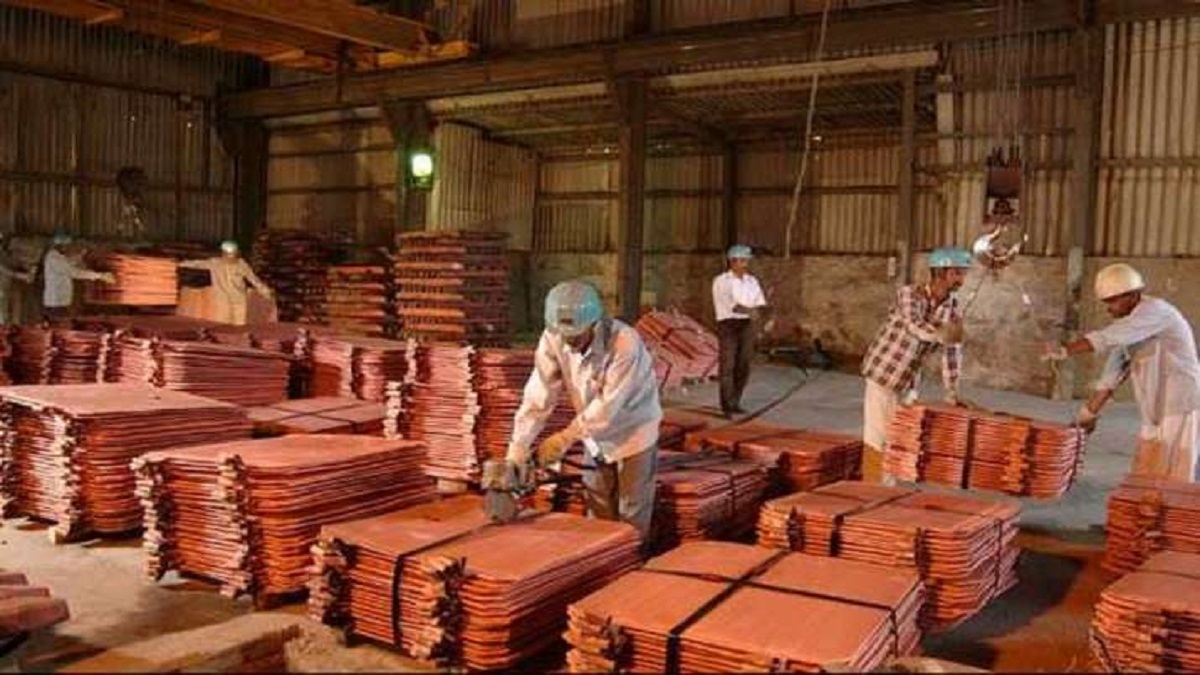Govt may offload 3.5% via initial OFS in Hindustan Zinc

Govt may offload 3.5% via initial OFS in Hindustan Zinc
The government’s decision to offload only 3.5 percent of its 29.5 percent stake in Hindustan Zinc Limited (HZL) via the offer for sale (OFS) route in the initial tranche is influenced by investor interest and the desire to retain certain rights as a shareholder. This approach is based on several factors:
1. Investor Interest: The government has considered investor sentiment and demand. Investors seem to prefer the government to maintain a stake in HZL, which suggests confidence in the company’s performance and governance.

2. Shareholder Rights: By retaining at least 26 percent of the stake, the government can maintain certain rights and privileges as a shareholder. These rights might include the ability to block financial resolutions proposed by the company board, among other things.
3. Prudence: The government official suggests that it would be unwise to offload an additional 1-2 percent of the stake because doing so might result in the government relinquishing many of these rights and privileges.

In essence, the government is taking a cautious approach to ensure that it can continue to influence or have a say in the company’s affairs, especially in critical financial matters. This decision reflects a balance between divestment goals and preserving the government’s interests as a shareholder in Hindustan Zinc Limited.
Hindustan Zinc Limited (HZL) is a prominent Indian company with a primary focus on the integrated mining and production of key base metals, including zinc, lead, silver, and cadmium. Notably, HZL operates as a subsidiary of Vedanta Limited, a major Indian conglomerate, which holds a substantial 64.92 percent stake in the company.

HZL’s core business revolves around the mining of zinc and lead ores and the subsequent refinement processes, leading to the production of these crucial industrial metals. Zinc, lead, and silver are integral components in a variety of sectors, such as construction, automotive manufacturing, and battery production.
The connection with Vedanta Limited is a significant aspect of HZL’s ownership structure. Vedanta Limited is a diversified natural resources company with interests spanning mining and metals, oil and gas, and power sectors. Its substantial stake in HZL reflects its active involvement in the mining and production of base metals.
However, despite HZL’s industrial significance, there has been a concern regarding tepid investor demand. Institutional investors appear to be less enthusiastic about investing in HZL, and one of the key factors contributing to this lackluster interest seems to be the prominent role of Vedanta Limited as the promoter of HZL. The choice of a promoter can influence investor sentiment and confidence in the company.
In response to the subdued investor interest, government officials had initially considered a modest stake sale of 5-6 percent in HZL. This decision is part of the government’s broader disinvestment strategy, where it divests its shares in public sector enterprises to raise capital or reduce its stake in specific companies. However, the government’s approach has evolved, as they are now considering a smaller 3.5 percent stake sale due to concerns about investor demand and the promoter’s role. This revised strategy is aimed at aligning the government’s disinvestment goals with market dynamics and investor preferences.
The government’s stake in Hindustan Zinc Limited (HZL) holds significant importance, particularly when it comes to retaining critical veto rights. If the government’s stake in HZL falls below 26 percent, it could potentially lose these essential rights, which are especially crucial in special resolutions requiring a 75 percent majority. These rights grant the government a substantial say in making significant decisions and implementing alterations within the company.
In light of the current tepid investor interest in HZL, the government appears to be taking a cautious approach. To ensure that it retains these critical rights while still benefiting from some liquidity, the government is likely considering offloading just enough shares to maintain its 26 percent stake in the company.
The government had initially approved the sale of its entire stake in HZL in 2022. If it were to proceed with this plan, it would receive an estimated amount of approximately Rs 40,000 crore from the sale of its entire 29.5 percent residual stake. However, the evolving circumstances and investor sentiment have prompted a reconsideration of this strategy, with the government now looking to balance its divestment goals with the retention of important shareholder rights.
The government’s involvement with Hindustan Zinc Limited (HZL) has been marked by a series of significant developments:
In 2009, Vedanta initiated arbitration proceedings after the government declined its second call option to acquire a 29.5 percent share in Hindustan Zinc. This legal dispute arose from disagreements between Vedanta and the government regarding the sale of HZL shares.
A pivotal moment came in 2021 when the Supreme Court of India granted the government the authority to disinvest its remaining stake in Hindustan Zinc through open market channels. This decision had far-reaching implications for the government’s strategy concerning its HZL stake.
In 2022, Vedanta made a crucial move by withdrawing its arbitration, signaling the potential resolution of a longstanding legal dispute between Vedanta and the government. This withdrawal likely removed a major obstacle to the government’s plans to divest its stake in HZL.
In the financial world, the Securities and Exchange Board of India (SEBI) provides a framework for selling shares. SEBI allows non-promoter shareholders who hold more than 10 percent of a company to utilize the Offer for Sale (OFS) route to sell their shares. Given that the government’s stake in HZL exceeds this threshold, it has opted to use the OFS route as the mechanism for selling its stake in Hindustan Zinc.
The government’s decision to divest its stake in HZL is intricately linked with legal developments, regulatory considerations, and shifts in the dispute with Vedanta. As of the article’s publication, responses from both the finance ministry and Vedanta Limited had not been received, suggesting that details of the stake sale might still be unfolding.




